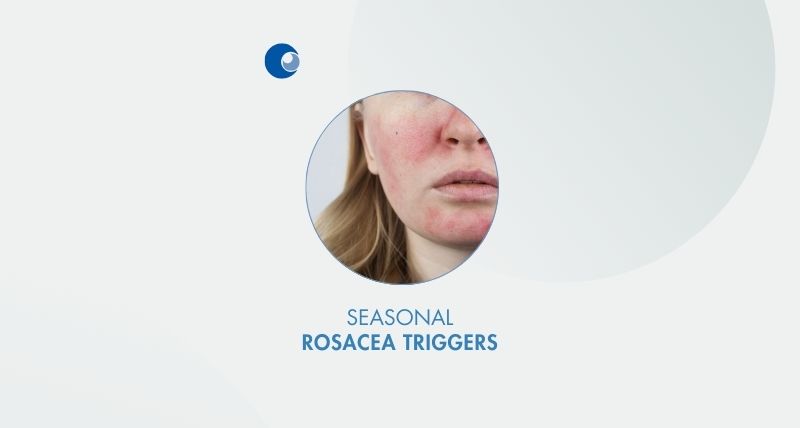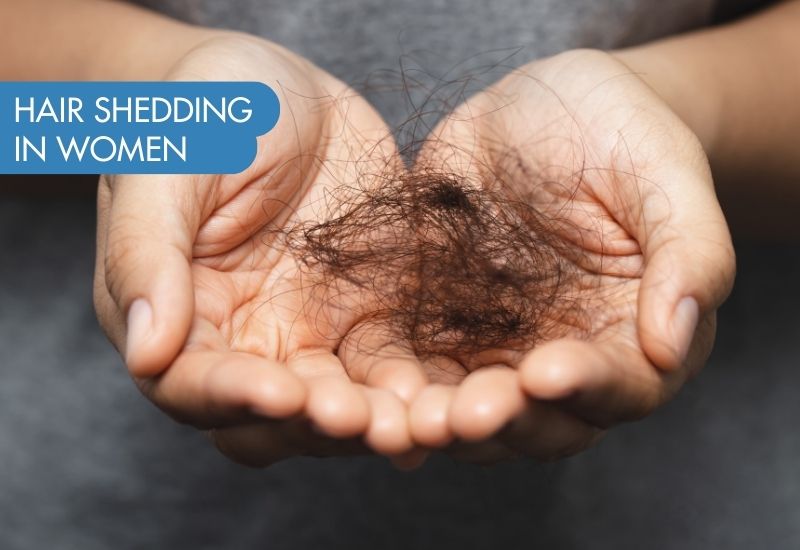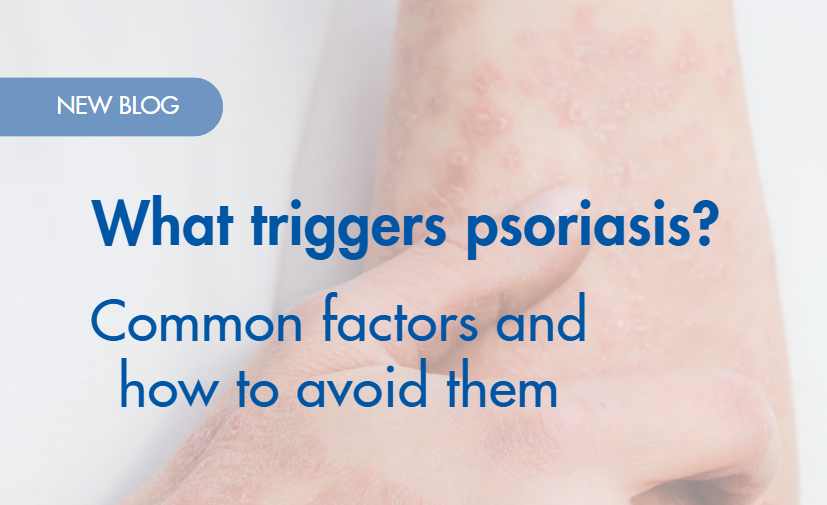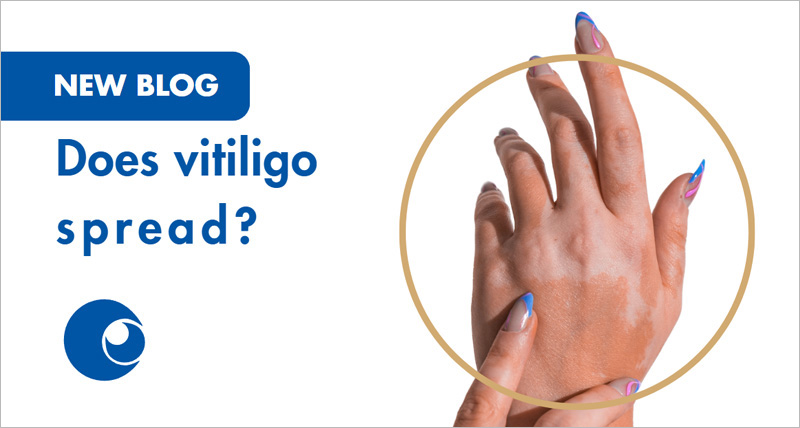Rosacea is a common, long-term skin condition that causes redness, flushing, visible blood vessels, and sometimes pimple-like bumps, usually around the centre of your face, including the cheeks, nose, chin and forehead.
It can also lead to skin sensitivity, swelling, and eye irritation. While the exact cause of rosacea is unknown, it’s believed to involve a combination of genetics, immune system factors and environmental triggers.
If you’re living with rosacea, understanding and managing your triggers is often a helpful way to ease symptoms.
But some triggers are easier to manage than others. You have some control over your diet or choice of skincare products, for example. Other triggers (like stress) can be much harder to manage.
One of the most significant but often overlooked influences? The weather.
Understanding weather and seasonal triggers
Changes in weather and season can dramatically impact rosacea symptoms. Shifts in temperature, humidity, and wind can all provoke flare-ups.
Adapting your skincare routine and daily habits to these environmental changes can make a noticeable difference in managing rosacea throughout the year.
Summer and warm weather effects
Summer can be particularly challenging for people with rosacea. Heat, sun exposure, and humidity are well-known triggers that can cause flushing, inflammation, and discomfort.
That’s difficult news when you live in ‘the sunburnt country’! So, what can you do about it?
- To help manage rosacea in summer, try to:
- Apply a broad-spectrum, SPF 50+ sunscreen daily. As sun exposure is a major trigger for rosacea (mineral, fragrance free sunscreens are preferable)
- Wear a wide-brimmed hat and seek shade when outdoors
- Avoid hot, humid environments where possible
- Stay hydrated
- Use gentle, fragrance-free, cleansers and moisturisers.
- Avoid exfoliants, alcohol-based toners, and heavily fragranced products
- Limit spicy foods, alcohol, and hot drinks, which can exacerbate flushing
- Use cold compresses to help soothe the skin and reduce facial redness or swelling during flare-ups.
Winter and cold weather effects
Cold, dry air and harsh winter winds can also be problematic for people with rosacea. These conditions can dry out the skin and trigger redness, irritation, and flare-ups.
To ease your rosacea in winter, try to:
- Use gentle, fragrance-free, cleansers and moisturisers
- Avoid exfoliants, alcohol-based toners, and heavily fragranced products.
- Avoid hot showers and use lukewarm water when washing your face
- Cover your face with a scarf when exposed to cold, windy conditions
- Use a humidifier indoors to maintain moisture levels in the air
- Continue sun protection, as UV rays are still present during winter months
- Use cold compresses to help soothe the skin and reduce facial redness or swelling during flare-ups.
- Continue to use SPF even on cloudy days.
Other common rosacea triggers
In addition to seasonal factors, many people with rosacea also experience flare-ups due to:
- Emotional stress
- Alcohol consumption
- Spicy or hot foods and beverages
- Certain skincare products or cosmetics
- Physical exertion and overheating
- Medications that dilate blood vessels
How Sinclair Dermatology can help
At Sinclair Dermatology, we know skin like the back of our hand.
We know people too. We understand how hard it is to live with a condition like rosacea, which is triggered by many everyday situations.
In our experience, managing rosacea requires a personalised approach addressing both medical and cosmetic needs. Early intervention helps minimise flare-ups and prevent complications such as eye involvement or skin thickening.
At Sinclair Dermatology, our team can provide:
- Advice from highly trained dermatologists to help you soothe your skin and manage your symptoms
- Personalised skincare plans tailored to your skin type and needs
- Advice from our qualified dermal clinicians who can discuss skin care and laser therapy options (if applicable in your circumstance).
With clinics conveniently located in East Melbourne, Parkville, and Pascoe Vale, Sinclair Dermatology is here to help you manage rosacea – whatever the weather.
Early intervention helps minimise flare-ups and prevent complications such as eye involvement or skin thickening.
Disclaimer
All information is general and not intended as a substitute for professional advice. Sinclair Dermatology can consult with you regarding your individual health needs.
References
- Healthcare Bulletin, Volume 14, Issue 3, Pages 1008-1014, Impact of environmental factors on the severity of rosacea: Multicentre Observational study, https://healthcare-bulletin.co.uk/article/volume-14-issue-3-pages1008-1014-ra/, [Accessed 13 May 2025]
- National Rosacea Society, Coping with common rosacea triggers, https://www.rosacea.org/patients/materials/coping-with-rosacea/coping-with-common-triggers, [Accessed 13 May 2025]
- American Academy of Dermatology, Preventing rosacea triggers, https://www.aad.org/public/diseases/rosacea/triggers/prevent, [Accessed 13 May 2025]







